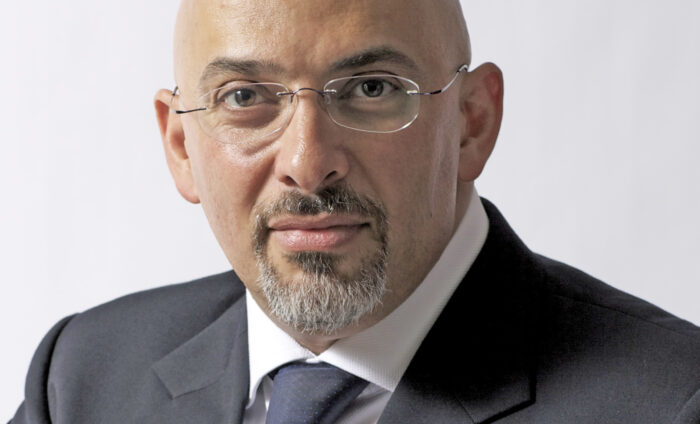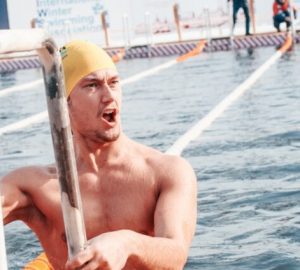
Swimming politics Nadhim Zahawi interview
With the start of the open water swimming season coinciding with several articles warning about the dangers of open water, Richard Royal interviewed Nadhim Zahawi MP, Chairman of the All Party Parliamentary Group on Water Safety and Drowning Prevention.
RR: What prompted you to set up the All Party Parliamentary Group (APPG) on Water Safety & Drowning Prevention and what are its key aims?
NZ: The Royal Life Saving Society’s HQ is based in my constituency. They are a nationally focussed charity and they brought to my attention the serious issue of drowning. Around 400 people die each year in the UK from accidental drowning and many more suffer life changing injury as a result of a near drowning incident. The aim of the APPG is to enable Members of Parliament to raise public awareness of the potential dangers of water to encourage safety whilst ensuring they can enjoy and participate in water based activity. The APPG will also examine whether it can support amendments to existing legislation that may help to save lives.
Do you and your family enjoy swimming either in a pool or in open water? Is it important to you that your children are able to swim?
We do enjoy swimming, but we often only get the chance when we’re on holiday. It’s so important that my children are able to swim, especially when you hear of so many tragic stories of young people losing their lives.
Your constituency of Stratford-Upon-Avon features major rivers and canals. What steps have been taken to ensure that these can be enjoyed safely without accidents and are there any examples of best practice that other urban areas can follow?
The waterways of Stratford are a truly fantastic feature of the town, and making them safe for people to enjoy, for both locals and tourists, is incredibly important. This means that there has to be a balance between safety measures and access, and of course as the waterways are used for transport the functions of the waterway cannot be inhibited by overzealous safety precautions.
I believe the waterside area, by the Royal Shakespeare Theatre, is a great example of this balanced approach. Safety fences are in place where they are suitable, and signs provide warnings where fences cannot be positioned due to the need to access boats on the river. There is also public rescue equipment available should it need to be used.
Swimming is the only sport that doubles as a life-saving skill but children have less access to it than many other sports. Do you think that swimming is given the correct level of priority in schools when compared to other sports such as football or athletics?
I have always valued swimming as a good form of exercise for all the family, and as a life skill. My work with the APPG on Water Safety & Drowning Prevention has further highlighted to me how important it is for all children to learn how to swim, and also how to stay safe around water.
These skills are included in the National Curriculum (England and Wales), and the APPG is working hard to support schools to deliver water safety information to the highest standard, particularly through campaigns like the RLSS UK’s Drowning Prevention Week.

Richard Royal is a regular open water swimmer and a former Parliamentary Candidate.
Do you think that basic life-saving and first aid should also be included in the curriculum?
Whilst First Aid skills are not compulsory in the curriculum, schools are encouraged to include a broad range of life-skills through the curriculum, and a lot of great First Aid and CPR education is taking place in schools, often supported by organisations such as RLSS UK and the British Heart Foundation.
I have previously written in H2Open Magazine (see here) that the Amateur Swimming Association (ASA) reports show many state schools fail to provide pupils with the national curriculum-recommended 22 hours of swimming per year and that 51% of children leaving primary schools are unable to swim the required 25m unaided in a pool. Why do you think schools are failing to provide the recommended level of swimming teaching and does it concern you that this puts children (and future adults) at risk of drowning?
It is indeed concerning that approximately half of children leaving primary school are unable to achieve the 25m swim. In addition to the standard school funding, primary schools have received an additional £150m which is ring-fenced to support the development of school sport, which can be used to increase swimming opportunities for pupils.
Whilst we would all like children to have more swimming opportunities through school, this needs to be balanced against the other needs of the curriculum. As a parent I also recognise that we all have a responsibility to take our children swimming and to make sure that they learn to swim to a good standard (beyond 25m), learn how to climb out if they fall in, and ultimately learn how to keep themselves safe in and around the water.
What more do you think could be done legislatively to ensure a greater prevalence of able swimmers, which could help to avoid future drownings?
The investment that has been made in school swimming, and the additional funds made available for PE in primary schools are key to improving the swimming achievements of primary school children.
Changes to a more open curriculum and increased freedom for schools to achieve learning in innovative ways has also given schools a greater ability to bring swimming and particularly water safety into the classroom.
Many parents, particularly in deprived areas, indicate that they struggle to cover the cost of their family attending a swimming pool. Do you think that having many pools in private hands (such as fitness centres or hotels) rather than run by councils makes it harder for individuals to swim regularly, either due to a lack of access or high cost? Do you think there is any scope for bodies such as councils or the government to subsidise these facilities?
Compared to many other family activities, the cost of swimming generally fares very well. Neither I nor the RLSS UK are aware of any research into the price difference between privately managed and council managed pools, but there doesn’t seem to be a great deal of difference at the pools that we have investigated.
Private leisure management companies have also brought much needed investment to many ageing former council pools, ensuring that they remain open, of a good standard, and continue to serve the community.
To what extent do you think that safety in and around water is an issue of personal responsibility as opposed to that of the owner/operator? I ask this particularly because there seems to be a tendency towards blaming a land-owner for accidents even if an individual is trespassing or inebriated.
Obviously there has to be a balance between every person’s responsibility for their own safety and for land owners to take sensible precautions to not put any person visiting their land at harm.
RLSS UK and British Triathlon are working together to help land owners develop a safe infrastructure which should open up more safe open water swimming sites around the UK.
At H2Open, we’re very keen to encourage more open water swimming and believe this is positive for both physical fitness and mental health. Do you think that in some cases, warning signs and campaigns can go too far and deter or frighten competent swimmers from enjoying a positive leisure activity in open water? Do you think it can also have the effect of punishing those who are sensible and safe open water swimmers because of the lack of common sense shown by a minority?
The increased growth in open water swimming is a great success in helping more people to enjoy healthy physical activity. Much of this growth has come from the increased provision of safe swimming sites and mass participation events which are supported by many of the swimming and lifesaving organisations.
However, as many of the 300-400 drownings each year occur as a result of people being ‘caught out’ by the hazards of open water, particularly the effect of cold water, it is of course essential that appropriate messages and warnings are available to educate the public.
All of the messaging that I have become aware of through the APPG has been positive and tended to signpost swimmers to safe activity rather than giving a simple “don’t do it” message.
There are more safe swimming sites across the UK being made available for ‘sensible and safe’ open water swimmers, and I thoroughly support this.
Nadhim Zahawi MP is the Member of Parliament for Statford-Upon-Avon and the Chair of the All party Parliamentary Group on Water Safety and Drowning Prevention.







